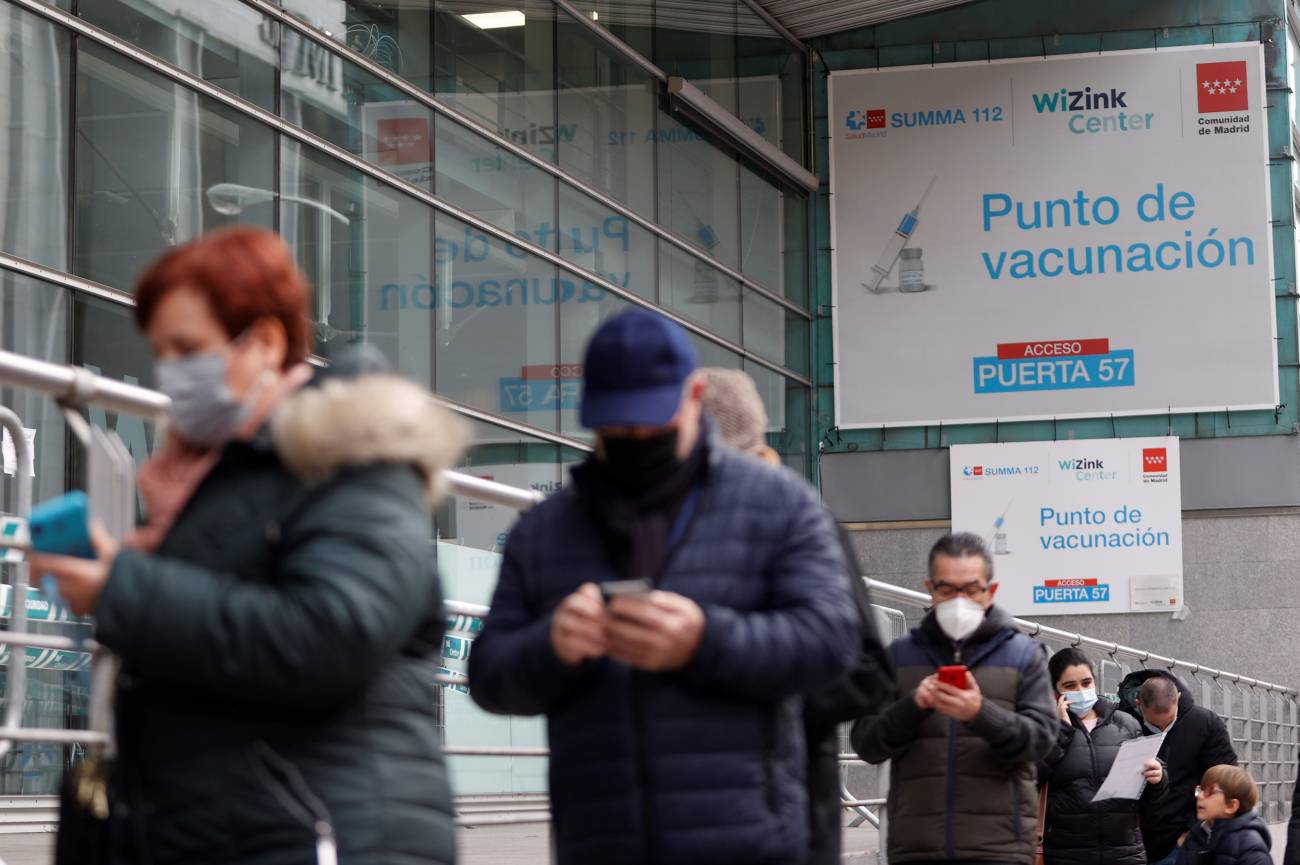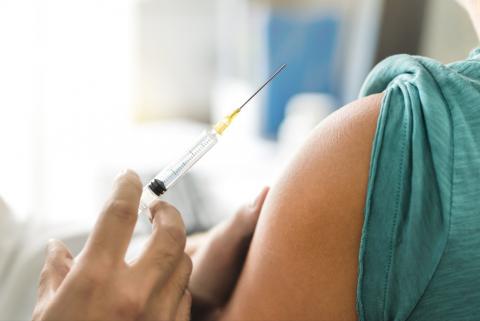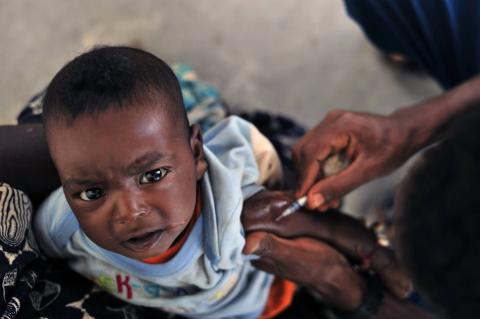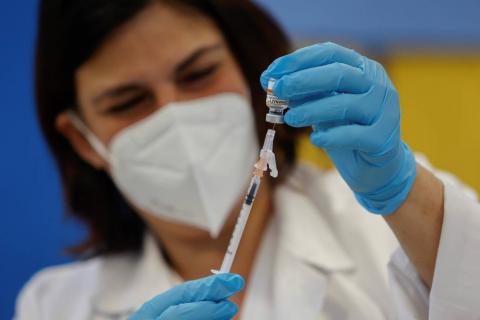When can I receive the third dose if I have recently been infected?
Spain recommends that people who have been infected with the coronavirus receive the third dose four weeks later. Experts assess the decision from an immunological point of view.
with the new Health Ministry recommendation to administer the booster five months after diagnosis of infection.

Vaccination queue at the WiZink Center in Madrid. / EFE/Mariscal.
Salvador Iborra - tercera dosis infectado EN
Salvador Iborra
Immunologist
In principle, accelerating the third dose would not be harmful for people who, having received the full course, have been infected with the virus.
Both the EMA and the CDC recommended giving a booster dose of Comirnaty to people over 18 who have received a second dose at least 5-6 months ago, and that seems a reasonable period.
If we have been vaccinated and infected, the virus will have acted as an extra booster dose unless the infection was immediately after vaccination, between 1 and 5 days. Therefore, it would be equally advisable to wait 5 or 6 months, which is the period in which it was seen that vaccine efficacy decreased and could be recovered with the booster.
It is necessary to space the time between doses sufficiently, although it is true that almost all studies have focused on the separation between the first and second dose, which was recommended to be between 3 and 4 weeks (Pfizer/Moderna). A distinction should be made between the time interval between the first and second dose, and the interval between the second dose and the booster dose.
A second dose is essential to increase the immune response in quantity (expanding the number of B and T lymphocytes generated in the first immunisation) and in quality (the second dose helps the B lymphocytes to mature their affinity for the first dose).
lymphocytes to mature the affinity of their antibody response). This response declines over time to save energy and respond to other pathogens. Therefore, the booster dose can help to ensure that this decline does not lead to a significant reduction in vaccine efficacy.
If we do not wait long enough, we will not improve the immune response provided by the infection, because normally the number of lymphocytes and the amount of circulating antibodies do not decline so quickly (in 3 or 4 weeks).
Ignacio J. Molina - tercera dosis infectado EN
Ignacio J. Molina Pineda
Professor of Immunology and Director of the Department of Biochemistry and Molecular Biology 3 and Immunology at the University of Granada
There is no experimental data to tell us the ideal time to re-immunise after the disease has passed. Therefore, there are general considerations of the functioning of the immune system and, above all, of public health in these decisions. Suffice it to recall that last year, when we started vaccination and doses were scarce, the period was 6 months because up to that point there was acceptable protection.
With the arrival of the delta variant and the wide availability of vaccines this period was shortened.
Now we are faced with the omicron variant, which is and behaves very differently from the previous ones, and partially escapes vaccines and infections with previous variants.
This is why re-immunisation has been brought forward, as a delta-infected person can easily become infected with omicron.
From an immunological point of view, one month is probably not optimal, although the possibility of an omicron infection weighs heavily. However, the period would influence the level of efficacy of the response and protection against the new variant, but in no case would it represent a higher risk of adverse effects. It will not be harmful.
Translated with www.DeepL.com/Translator (free version)
José Jiménez - tercera dosis infectado EN
José Jiménez
Virologist at King's College London
It should be noted that this infection would be the equivalent of receiving a third, but more complete, dose. This is because with vaccines our body produces an immune response against the S protein of the virus, but with infection our body is exposed to all the antigens of the virus and not only the S protein.
Given this and the fact that omicron is a new variant about which we do not yet know much, it might be best not to re-vaccinate newly infected people so quickly, to wait a few months to see how the pandemic evolves and to assess the protection that the infection confers on vaccinated people who have just been infected.
In addition, during this time it is possible that updated vaccines against the new variants may become available. We must not forget that we are using vaccines designed against the variant that appeared in Wuhan and during the course of the pandemic the virus has accumulated a significant number of mutations.



